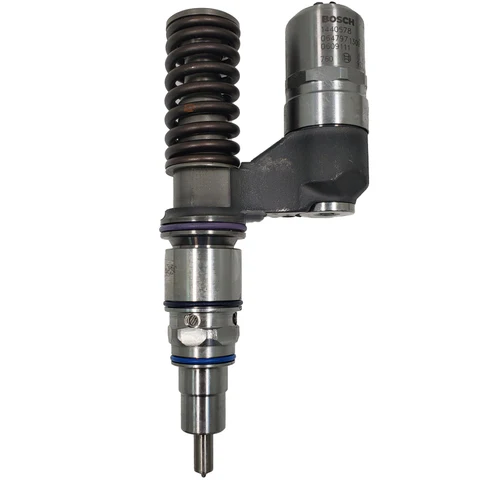Fuel injectors are vital for your vehicle’s performance, delivering precise fuel to the engine. Problems with them can cause poor efficiency or power loss. DIY mechanics can diagnose issues with the right approach. Fuel injectors, when faulty, show clear signs that you can spot. Goldfarb & Associates offers guidance to help you troubleshoot effectively.
Understanding Fuel Injector Function
Fuel injectors spray fuel into the engine’s combustion chamber for efficient burning. Knowing how they work helps identify issues. This section explains their role and why they matter.
Role in Engine Performance
Fuel injectors control the fuel-air mix for optimal combustion. They ensure smooth idling and acceleration. Faulty injectors disrupt this balance, reducing power. Proper function is key to vehicle efficiency.
Common Causes of Failure
Injectors fail due to clogs, leaks, or electrical issues. Dirt, carbon buildup, or worn seals are common culprits. Regular maintenance prevents these problems. Understanding causes aids in accurate diagnosis.
Signs of Fuel Injector Problems
Recognizing symptoms of faulty fuel injectors is the first step in diagnosis. Early detection allows for timely fixes. Below are common indicators to watch for.
Engine Misfires or Rough Idling
A misfiring engine or shaky idling often points to injector issues. Clogged or leaking injectors disrupt fuel delivery. This causes uneven performance. Checking injectors can resolve these symptoms.
Unusual Engine Noises
Clicking or ticking sounds from the engine may signal injector problems. Faulty electrical connections or stuck injectors cause these noises. Listening closely aids in diagnosis. Prompt action prevents further issues.

Steps to Test Fuel Injectors
DIY mechanics can test fuel injectors with simple tools and techniques. Following these steps ensures accurate results. This section provides a clear testing process.
Visual Inspection
Start by checking injectors for physical damage or leaks. Look for fuel residue or worn seals. Ensure connections are secure. A visual check can reveal obvious issues.
Listening for Injector Operation
Use a mechanic’s stethoscope or screwdriver to listen to each injector. A healthy injector makes a clicking sound. Silence or irregular sounds indicate problems. This test is simple and effective.
Diagnosing Specific Issues
After testing, pinpoint the exact problem with your fuel injectors. This helps determine the right fix. Below are common issues and how to diagnose them.
Clogged Injectors
Clogs cause uneven fuel spray, leading to misfires. Use a fuel pressure tester to check flow. Low or inconsistent pressure indicates blockages. Cleaning or replacement may be needed.
Leaking Injectors
Leaks cause fuel loss and poor performance. Look for wet spots or fuel smells near injectors. A pressure test can confirm leaks. Addressing leaks quickly prevents engine damage. view more
Fixing Fuel Injector Problems
Once diagnosed, most injector issues can be fixed at home. Taking the right steps ensures success. This section covers basic repair methods.
Cleaning Clogged Injectors
Use a fuel injector cleaning kit to remove blockages. Follow kit instructions carefully. Run the engine to circulate the cleaner. Cleaning restores proper fuel flow.
Replacing Faulty Injectors
If cleaning doesn’t work, replace the injector. Use a compatible replacement part. Ensure proper installation to avoid leaks. Goldfarb & Associates can recommend quality parts.

Conclusion
Diagnosing and fixing fuel injector problems is manageable for DIY mechanics with the right tools. By spotting signs like misfires or poor fuel economy, you can act quickly. Testing and cleaning injectors restore engine performance. Regular maintenance prevents future issues. Trust Goldfarb & Associates for expert advice and quality parts to keep your vehicle running smoothly.
FAQs
What causes fuel injectors to clog?
Dirt, carbon, or low-quality fuel can clog injectors. This restricts fuel flow, causing misfires. Regular fuel additives help prevent buildup. Cleaning restores proper function.
How do I know if my fuel injectors are leaking?
Look for fuel smells, wet spots, or poor fuel economy. A pressure test confirms leaks. Leaking injectors waste fuel and harm performance. Quick repairs prevent engine damage.
Can I test fuel injectors without special tools?
Basic tests, like listening for clicks, need minimal tools. A screwdriver can work as a stethoscope. However, a multimeter or pressure tester improves accuracy. These tools ensure thorough diagnosis.
How often should I check my fuel injectors?
Inspect injectors every 15,000 miles or during routine maintenance. Regular checks catch issues early. Use quality fuel to reduce problems. Consistent care maintains performance.
What happens if I ignore fuel injector issues?
Ignoring problems leads to misfires, poor efficiency, or engine damage. Faulty injectors disrupt combustion. Addressing issues early prevents major repairs. Regular maintenance ensures reliability.
